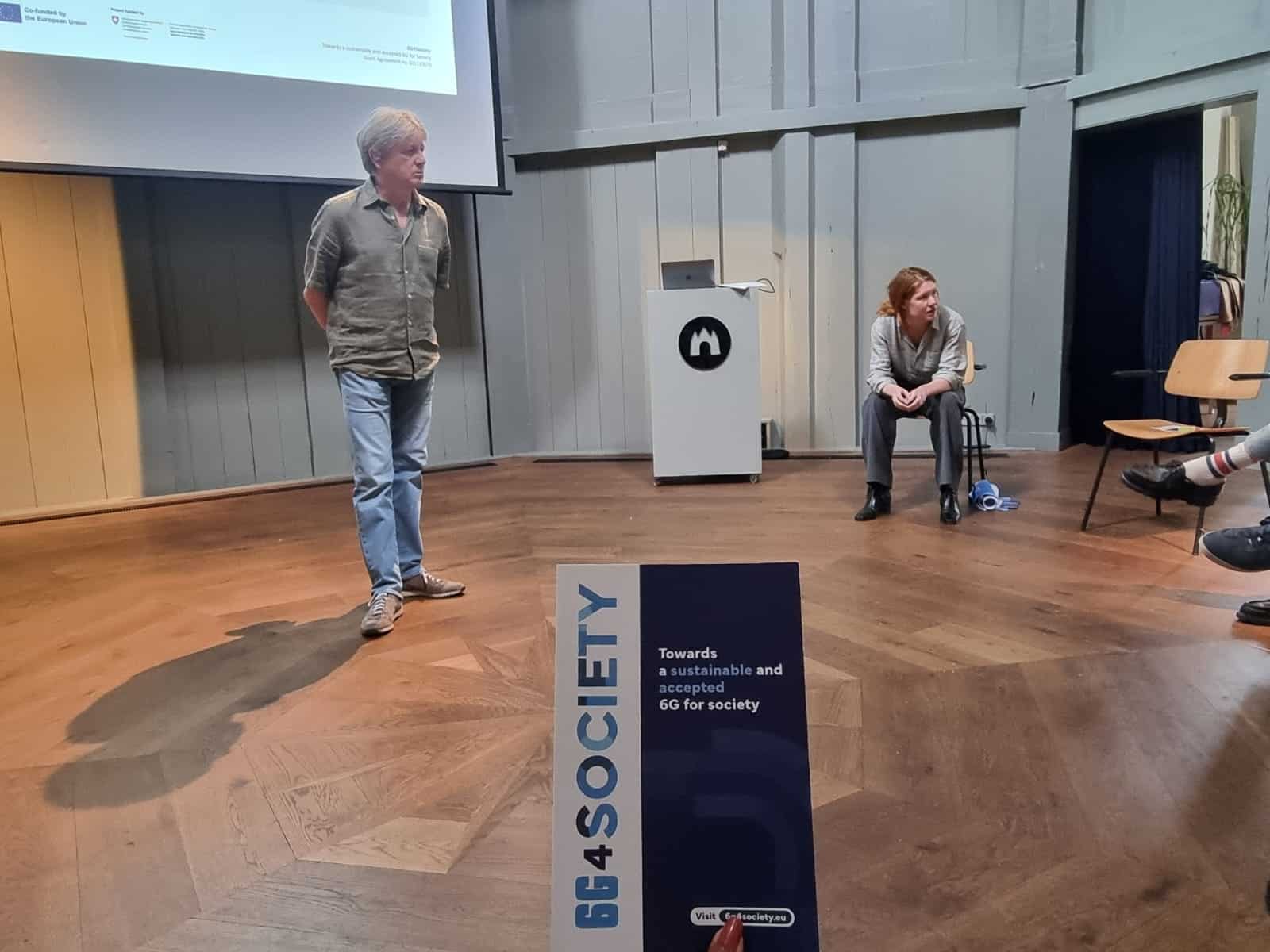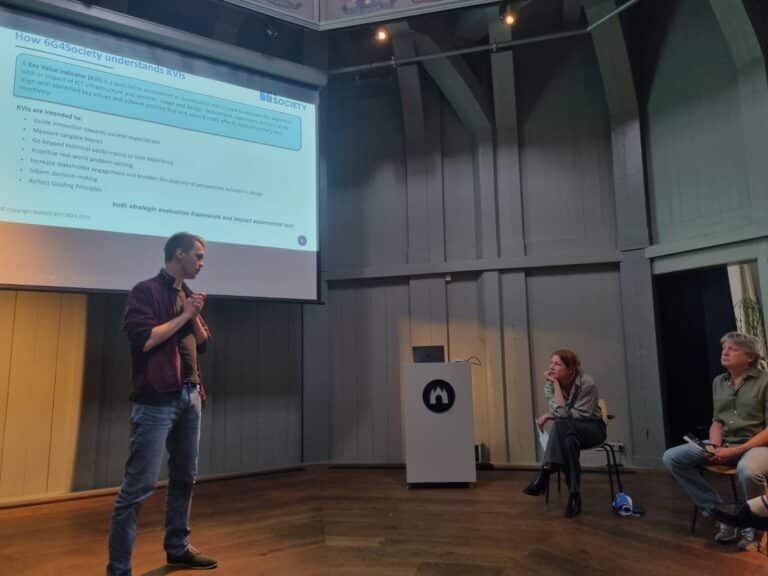Rethinking connectivity - Insights from the 6G4Society workshop in Amsterdam
On 30 September 2025, 6G4Society hosted an in-person workshop at the historic Theatrum Anatomicum of Waag Society in Amsterdam.
The venue, famously known as the site where Rembrandt painted The Anatomy Lesson of Dr. Nicolaes Tulp, offered a fitting backdrop for the day’s discussions, which aimed to “dissect” the technological and societal paradigm shifts that 6G will bring.
Bringing together researchers, technologists, and social innovators, the workshop provided a space for open dialogue on what kind of connectivity society actually wants and how 6G can be developed in ways that strengthen democracy, sustainability, and public trust.
What Kind of Connectivity Do We Want?

One of the workshop’s central themes was the need for a broader societal debate about the future of connectivity. The internet, the web, and mobile technologies are still relatively young, but they have already transformed economies, communication, and culture. Yet, as participants observed, we still lack a clear pedagogy for a hybrid society, one that blends analogue and digital life.
This gap becomes increasingly visible in contradictions within public life: while engineers push for higher speed and lower latency, many schools are banning smartphones, and studies continue to link social media use with sleep and attention problems. The group agreed that the conversation about 6G must therefore extend beyond technical upgrades to include social, cultural, and ethical dimensions; in short, not just what we can build, but what we should build.
Framing 6G as Public Infrastructure

The workshop emphasised that 6G is not merely a faster network, but a foundational technology that could underpin the next generation of public infrastructure.
Where 5G integrates the Internet of Things (IoT), connecting devices, 6G integrates Artificial Intelligence (AI), enabling the network itself to become semi-autonomous. This shift will influence how societies operate, from transport and energy systems to governance and public services.
Participants agreed that the narratives surrounding 6G must therefore evolve. Rather than focusing on industrial use cases or isolated technical milestones, the message to citizens, policymakers, and businesses should highlight that we are building the “railways and roadways” of the 21st century, critical infrastructures that enable economic growth, democratic resilience, and strategic autonomy.
Shaping the Narrative: From Industry to Society
A key takeaway from the workshop was the need to involve broader stakeholder groups in shaping and communicating the story of 6G.
While industrial actors have traditionally led discussions around next-generation networks, participants stressed that policymakers, educators, civil society organisations, and citizens must all have a seat at the table. Only through shared ownership of the narrative can Europe ensure that 6G reflects public values and contributes to societal wellbeing.
This societal framing also supports the European Commission’s vision of bringing 80% of intelligent processing to the edge, thereby reducing dependence on global hyperscalers and enhancing Europe’s strategic digital autonomy.
Embedding Values through Key Value Indicators
Another central point of discussion was the importance of Key Value Indicators (KVIs) as a practical framework for embedding values into 6G development.
Participants agreed that KVIs are not optional, but essential for building use cases that are both technically robust and socially meaningful.
KVIs are derived from Key Values, translating abstract principles, such as sustainability, privacy, or inclusion, into measurable indicators. By mapping these values to technological enablers, KVIs can help ensure that future networks are energy efficient, trustworthy, and aligned with public expectations.
Conclusion: A Call for Broader Engagement
The Amsterdam workshop made one thing clear: the future of connectivity cannot be determined by engineers alone.
To ensure that 6G serves as a public good, we need an inclusive, sustained dialogue that bridges technical innovation with societal reflection. As discussions at Waag Society showed, the next generation of networks will not only connect devices and data; it will connect values, people, and purpose.
By grounding 6G development in public dialogue and measurable values, Europe has the opportunity to build a network that is not just faster, but fairer, more resilient, and more human.
 Stay tuned for upcoming events and join the conversation via our Community Forum!
Stay tuned for upcoming events and join the conversation via our Community Forum!


